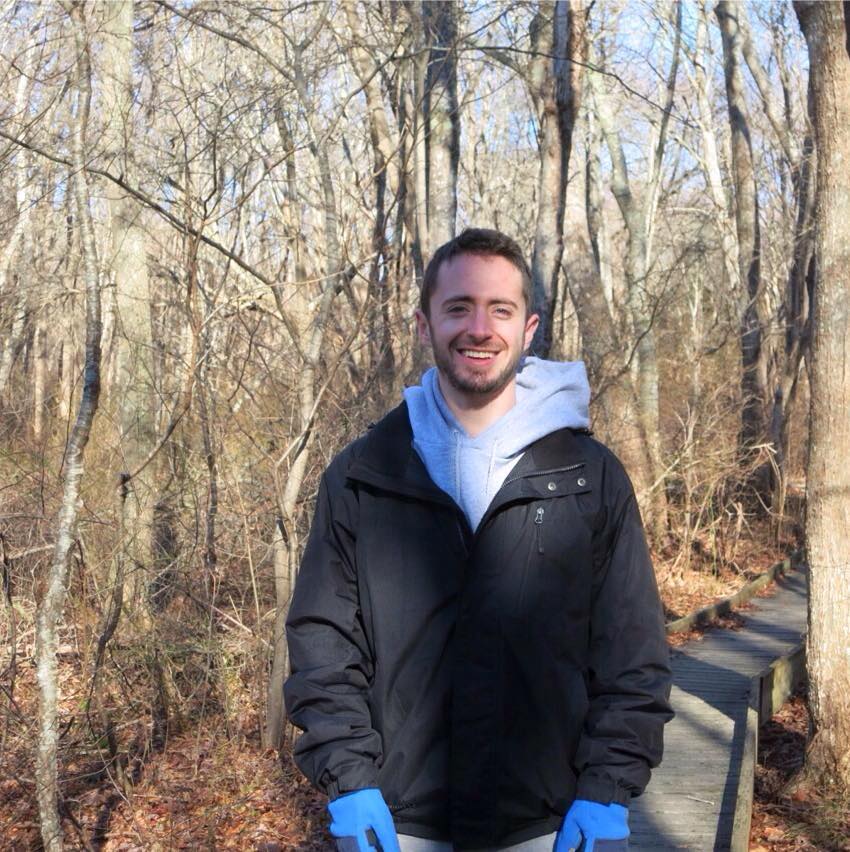Evan Hunter, Biology PhD candidate, sits down with the College of Science Graduate Program staff to talk about what it’s like to work and study at Northeastern University.
Please describe your research.
In the Chai Laboratory, we study biofilms formed by Bacillus subtilis, a soil bacterium that colonizes plant roots and secretes a protective matrix that enhances plant growth and protects against infection. Our goal is to investigate the signals and molecular regulations governing biofilm formation using genetic and biochemical techniques. From there, we study everything from cell differentiation to post-translational modifications of essential proteins.
What is your favorite part about Northeastern?
I love that Northeastern embodies the collaborative atmosphere for which Boston is world-renowned. I’ve been fortunate to meet many highly motivated people who have innovative ideas and are excited to discuss science. I think that the freedom to talk to people, combined with the emphasis on experiential learning, is conducive to an environment where people try new things.
Why did you choose to attend Northeastern?
After graduating from Denison University in 2014, my goal was to pursue a PhD in Boston. After applying to Northeastern, I was thrilled to join the lab of Dr. Win Chai. Not only is he an expert in bacterial biofilms, but he is also a passionate educator. Furthermore, his research focus is the best possible fit for my interests, so working in his lab is a scientific dream come true.
What is your favorite part of Boston?
In addition to the people, I love that Boston is easy to traverse. The MBTA makes it possible to see lots of different things in one day. This is especially great because, from museum exhibits to music performances, there is always something exciting happening.
What are the perks of being a Northeastern graduate student?
Free admission to the MFA is a definite plus. Also, for $25, you can see concerts at the Boston Symphony Orchestra for the entire season (September-May).
What advice would you give to an incoming graduate student?
Take advantage of the knowledge and experiences of other scientists. Sharing tips on techniques or equipment can make an entire lab run more efficiently. But just as importantly, make sure you have a life outside of work. Go bike riding along the Charles, or try singing karaoke. Having an outlet for stress is good for your health, and will make you more productive at work.
What are your plans after degree completion?
My dream is to find a post-doc and teach at a small liberal arts college. However, I’m open to the opportunities that may present themselves along the way.

